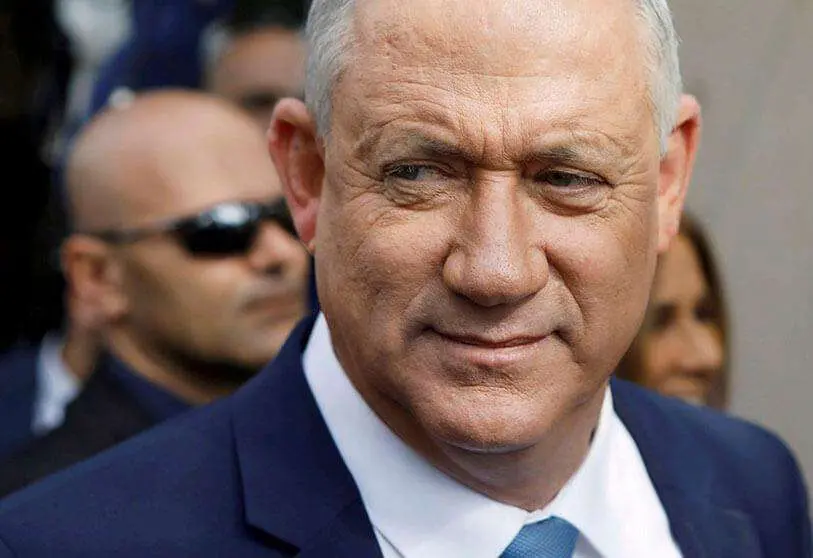Israel threatens to attack Iran after tensions in the Strait of Hormuz

The Strait of Hormuz has once again been the scene of a confrontation between two historic enemies, Israel and Iran. The incident a week ago against a Japanese-owned tanker called Mercer Street, operated by Israeli billionaire Eyal Ofer's Zodiac Maritime, continues to be the subject of controversy. According to local media, senior government and defence officials met urgently to discuss the matter, and Israeli officials are now seeking the support of Western countries in denouncing the extent of alleged Iranian activities in the Middle East.
Israel sees Tehran as its main enemy in the region and an existential threat. This incident appears to mark a new chapter in tensions between Israel and the Islamic Republic, following other aggressions and sabotage against ships in the Gulf over the past two years, a dynamic that has intensified in recent months. The world's most heavily guarded 280 kilometres between Iran, Oman and the United Arab Emirates separate the Persian Gulf from the Gulf of Oman. The notorious Strait of Hormuz is one of the world's most important and strategic sea passages through which a fifth of the world's oil exports pass, making the area of great regional and global value.

There is a reason for all this movement of oil and natural gas: several of the world's major oil producers are located around this strait, and in total the countries with waters in this area pump about a third of the world's barrels of oil. Obviously, all this oil has to be exported somewhere, and the natural outlet in the Persian Gulf is the Strait of Hormuz. For this reason, the Strait of Hormuz has been a scenario that Iran has used on several occasions to destabilise the area with attacks on cargo ships, which have intensified in recent years following the political and economic sanctions imposed by the United States on the Persian state as a result of the US withdrawal in 2018 from the nuclear pact signed with Iran in 2015, which limited Iran's atomic programme, especially in terms of weapons.
The Trump Administration denounced the Islamic Republic's non-compliance with the terms of the agreement and imposed sanctions on the Iranian country, including those related to the crude oil trade, the main source of financing for the Persian nation. The US government has shown its support for Israel in the face of this attack and has declared itself "certain" that Iran was responsible for the attack on the tanker off the coast of Oman, which caused two deaths. The US Secretary of State, Antony Blinken, has pledged that the US will respond to the attack "collectively" with the UK, Israel, Romania and other countries.

Israel has announced that it is prepared to attack Iran, Israeli Defence Minister Benny Gantz said. "Iran is an international and regional problem," Gantz said. "The world witnessed an example on Friday," referring to the attack on the Mercer Street freighter that Israel blamed on the Islamic Republic. The defence minister also claimed that the Islamic Republic is 10 weeks away from obtaining a nuclear weapon. "Iran has violated all the guidelines set out in the JCPOA (nuclear deal) and is only 10 weeks away from acquiring weapons-grade materials needed for a nuclear weapon," Gantz warned diplomats from UN Security Council member states.
Israel is seeking a meeting of the 15-member UN Security Council on what it has called Iranian maritime "terrorism" and condemnation of attacks on international trade. Meanwhile, US State Department spokesman Ned Price said the US was working with Britain to convene a UN Security Council meeting on the issue.

Iran, however, rejects all accusations and speaks of "psychological warfare". The head of the Iranian presidential office, Mahmoud Vaezi, has urged US President Joe Biden to distance himself from the policies of his predecessor Donald Trump and not to give in to the Hebrew country's wishes. "The US return to the nuclear deal and the lifting of sanctions (against Iran) is a matter that is strongly opposed by the Zionist regime and some Arab countries in the region hostile (to Tehran), such as Saudi Arabia," Vaezi stressed.
Negotiations on a return to the nuclear deal with Iran have been frozen since last June. The Islamic Republic had already announced that these negotiations would not be resumed until the new Iranian president, Ebrahim Raisi, formed a government, so the meeting could be delayed until September. Recent events have not favoured a possible agreement between the United States and the Persian country, whose relations are at a point of maximum tension.








